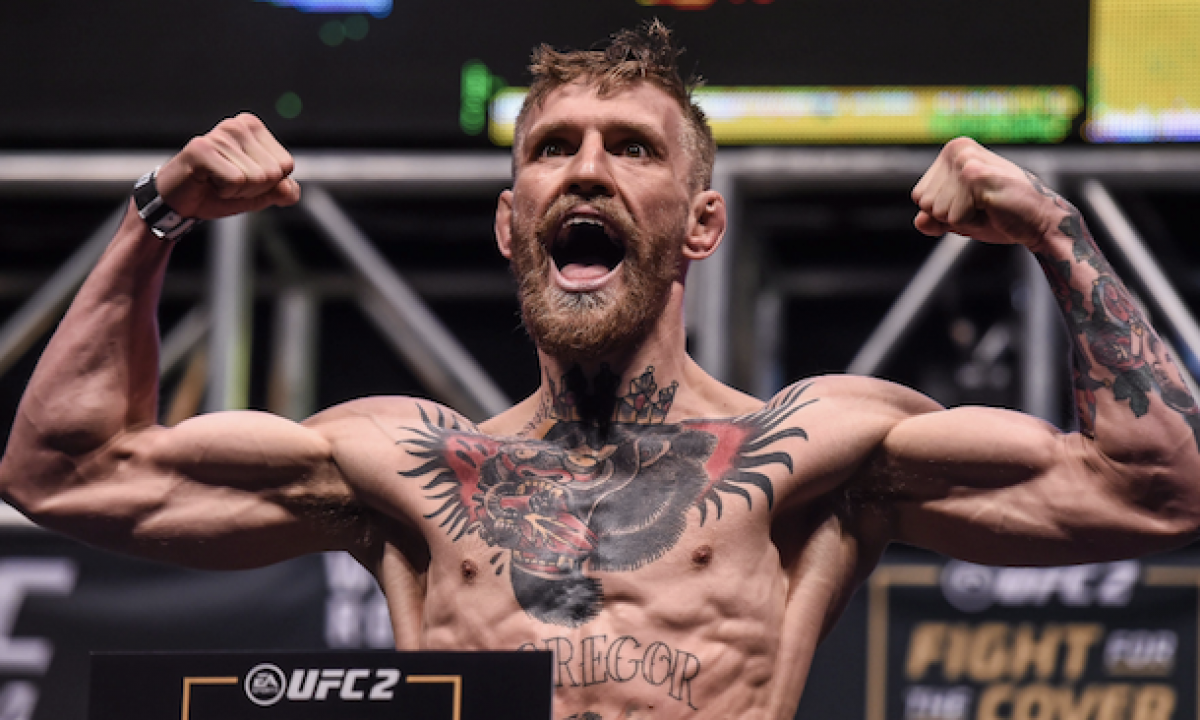Introduction : Weight cutting in UFC is a problem
Weight cutting has become a highly debated and contentious issue in the world of mixed martial arts, especially within the UFC. This practice, characterized by fighters drastically reducing their weight before a fight, has sparked intense discussions and raised concerns about its potential dangers. In fact, weight cutting is argued to be even more detrimental than the use of performance-enhancing drugs (PEDs), a claim emphasized by the well-known UFC commentator Joe Rogan. The consequences of weight cutting, both physical and psychological, are significant and cannot be ignored. It is crucial for the combat sports community, particularly the UFC, to address this issue comprehensively and find effective solutions that prioritize the health and well-being of fighters.
Prevalence and Controversies
Weight-related controversies have been a persistent issue within the UFC for many years. Fighters have consistently encountered difficulties in meeting the required weight for their respective divisions. This problem has had significant consequences, as exemplified by the case of Charles Oliveira, a former UFC champion. His inability to meet the 155-pound requirement resulted in the unfortunate loss of his title. It is worth noting that such incidents have prompted the UFC to make changes to fight cards. For instance, Kamzat Chimaev‘s failure to make weight led to the necessary reshuffling of the fight card. These instances serve as reminders of the ongoing challenges faced by fighters in their quest to meet the weight requirements set by the UFC.
/cdn.vox-cdn.com/uploads/chorus_image/image/70841517/1395776363.0.jpg)
Charles Oliveira after missing weight
Root Problem: Compelled Weight Cutting
One of the fundamental challenges faced by fighters in combat sports is the immense pressure they experience to undergo drastic weight cuts in order to gain a competitive edge within their respective weight classes. This is a significant issue that affects fighters like Alex Pereira, who typically weigh around 220-230 pounds, but are competing in the 185-pound division. This serves as a clear illustration of the magnitude and severity of this problem within the sport.
Negative Consequences
Extreme weight cutting takes a significant toll on fighters both physically and mentally. The toll can be seen not only in their appearance, with severe dehydration and weakened muscles, but also in the potential impact on brain function. This dangerous practice poses numerous risks that are of great concern and require immediate attention from the combat sports community. The long-term consequences of extreme weight cutting can include organ damage, hormonal imbalances, and compromised immune function. It is crucial to address this issue and implement effective measures to protect the well-being and safety of fighters. Education and awareness campaigns, stricter regulations, and improved support systems for athletes are all essential components of a holistic approach to combat the detrimental effects of extreme weight cutting.
One Championship’s Approach: Hydration Tests
One Championship, a highly regarded organization in the world of mixed martial arts, has adopted a proactive and innovative strategy to address the issue of weight cutting among fighters. In an effort to prioritize the safety and well-being of their athletes, they have introduced a rigorous hydration testing system. This testing system ensures that fighters are able to compete at their optimal and natural weight, without resorting to the dangerous practice of extreme weight cutting. By implementing such measures, One Championship has successfully eliminated the prevalence of this harmful practice within their organization, setting a positive example for the entire combat sports community.
Potential Obstacles in UFC
While One Championship’s approach seems promising, its adoption in the UFC would present significant challenges. Implementing such a system would require a major overhaul of the UFC’s weight classes and could potentially impact current championship holders. However, it is important to consider that introducing this system could also bring about positive changes and improvements to the sport. It could create fairer competition among fighters, provide more opportunities for up-and-coming athletes, and add an extra layer of excitement for fans. Additionally, the implementation of this system could lead to a more standardized and globally recognized ranking system, which could enhance the reputation and prestige of the UFC. Therefore, despite the challenges, exploring the adoption of One Championship’s approach could potentially have far-reaching benefits for the UFC and the sport of mixed martial arts as a whole.

Conclusion: A Step Towards Change
Though not a perfect solution, the implementation of a comprehensive weight-cutting prevention approach is undoubtedly a significant step in the right direction. It is crucial to prioritize the health and well-being of fighters, and the need for change in the current system is evident.
Weight cutting, a practice that involves drastic and often dangerous methods to shed weight before a fight, remains a pressing issue in the UFC. It poses risks to the fighters’ health and can lead to severe dehydration, decreased performance, and even long-term damage. Therefore, it is essential to address this issue and find effective solutions.
By engaging in continued discussions and taking proactive measures, such as introducing stricter weight class regulations, providing better education and support for fighters, and implementing frequent health checks, there is hope for a safer and fairer environment for fighters. These measures can help mitigate the risks associated with weight cutting and ensure that fighters compete at their optimal performance while maintaining their health and well-being.
In conclusion, while the implementation of a weight-cutting prevention approach may not be a perfect solution, it signifies a significant step in the right direction. It highlights the acknowledgment of the pressing issue and the commitment to prioritize fighter safety. By adopting proactive measures and implementing necessary changes, the UFC can work towards a safer and fairer environment for all fighters.
